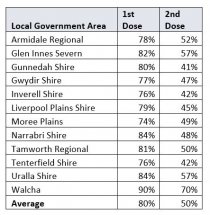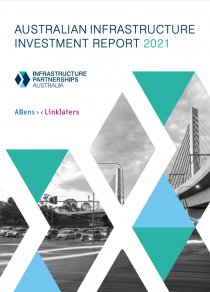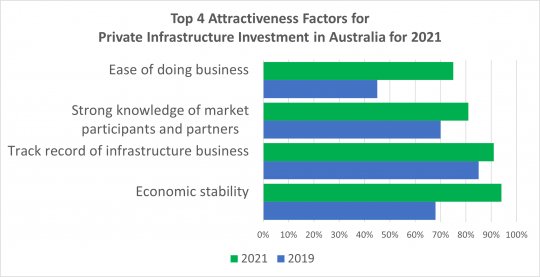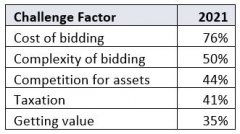-
Featured Items
-
Featured Resources
 Funding & Grants
Don't miss out on funding opportunities. Stay informed with our up to date online listings and email notifications.
Read More
Funding & Grants
Don't miss out on funding opportunities. Stay informed with our up to date online listings and email notifications.
Read More
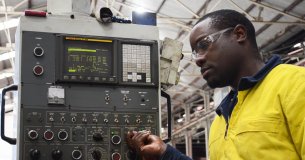 Skilled Migration
Our services help both applicants and employers, to learn more, develop plans, submit applications, and settle in.
Read More
Skilled Migration
Our services help both applicants and employers, to learn more, develop plans, submit applications, and settle in.
Read More
 Research and Analysis
Good research and analysis makes the case. How can our resources and services help your project or application?
Read More
Research and Analysis
Good research and analysis makes the case. How can our resources and services help your project or application?
Read More
 Information & Data Resources
With resources like REMPLAN, Regional Knowledge Base, and decades of data, discover how we can help your project.
Read More
Information & Data Resources
With resources like REMPLAN, Regional Knowledge Base, and decades of data, discover how we can help your project.
Read More
-
Stay InformedSubscribe to one or more of our regular email subscriptions, to be kept up to date on news and funding opportunities for the region
-
-
Our Region
- Our Region
- Regional Plan
- Regional Data
- Current Regional Issues
- Population Migration Analysis for 2016-21
- Job Vacancies Continue at All-Time High
- National Debt - What it Means for Our Economy?
- The True Value of Home Solar
- The Economic Impacts of Local Government Amalgamations
- State of the Regions Report 2014-15
- Antifragility - A different take on regional economic development
- Biohubs - Collaborative Waste Management
- Attracting New Residents
- Socio-Economic Impacts of the Murray Darling Basin Plan
- Murray Darling Basin Water Recovery
- Growing Businesses
- The Northern Inland Economy
- Geographical Overview
- Major Industry Sections
- Our Services
- Grants and Funding
-
Skilled Migration
- Skilled Migration
- Skilled Employer Sponsored Regional Visa
- Skilled Work Regional Visa (subclass 491)
- Temporary Seasonal Workers
- Designated Area Migration Agreement (DAMA)
- Helpful Information for Visa Holders
- Information for Employers
- Case Studies
- Payment Details
- Advice & Further Information
- Contact Details
- News & Events
-
Our Projects
- Our Projects
- Current Projects
- Skilled Migration
- Wool Works - Wool Training Schools
- Metal Works - Welding and Fabrication Schools
- Come On Inland
- Stories of Resilience
- Alt Brothers Beekeeping - Glen Innes
- Carelle's Toy Store - Glen Innes
- Greenhill Orchards - Arding
- Gwydir Meats - Warialda
- Kaputar Motors - Narrabri
- Moonbi General Store - Moonbi
- Sandstock - Tingha
- Sherelle Fashions - Tenterfield
- Sleepy Merino - Inverell
- Tenterfield Chamber of Toursim, Industry and Business - Tenterfeild
- The Welders Dog - Armidale
- Walcha Veterinary Supplies - Walcha
- AGCAP - Agribusiness Careers & Professions
- Northern Inland Regional Investment Profile
- Past Projects
- Digital Economy Strategy
- Business Growth Project
- Go Digital
- How to Start an Online Business
- Create Your Website Using Squarespace
- How to Edit Your Squarespace Site - Part 1
- How to Edit Your Squarespace Site Part 2
- Add a Shop to Your Squarespace Site
- Start a Blog and Find out What Customers are Searching
- 14 Tips For a Better Blog Post
- Which Social Media Platforms are Best for Your Business
- How to Use Facebook Effectively For Your Business – Part 1
- How to Use Facebook Effectively For Your Business – Part 2
- Instagram Tips for Business
- Catching Up, More Instagram & Dealing with Haters
- Getting Started with Twitter for Business
- Social Media Scheduling Tools
- How to Start an Etsy Shop – Part 1 – Research
- How to Start an Etsy Shop – Part 2 – Signup
- Online Security for Your Business
- Product Photography and Website Images: Your Guide
- 5 Tips to Improve your Productivity in your Business
- Best Online Business Resources
- How to Improve Your Communication Skills and Win More Clients
- NBN Coordinator
- Putting Power Back in the Regions
- Road Freight Study
- Town Audit Benchmarks
- Food and Wine
- Youth Survey
- Digital TV Switchover Assistance
- Northern Inland Transport Guide
- Live.Train.Work
- Northern Inland Innovation Awards
- Northern Inland Innovation Awards - 2017
- Northern Inland Innovation Awards - 2016
- Northern Inland Innovation Awards - 2015
- Northern Inland Innovation Awards - 2014
- Northern Inland Innovation Awards - 2013
- Northern Inland Innovation Awards - 2012
- Norther Inland Innovation Awards - 2011
- Prime Super Northern Inland Innovation Awards - 2010
- Prime Super Northern Inland Innovation Awards - 2009
- Northern Inland Innovation Awards - 2007
- Northern Lights Project
- NBN Smart Home
- Murray Darling Basin
- Moree Plains Business Workshops
- Namoi Investment Prospectus
- Industrial Land
- Bioenergy and Local Electricity Retailing
- Northern Inland Business Energy Assessment
- Skills for the Future
- Impacts of COVID-19 on Businesses
- Past Projects of NIRDB
- Aboriginal Employment and Enterprise in the Gunnedah Region
- Art as an Industry
- Aviation Survey
- Farm Forestry - Northern Inland Forestry Investment Group
- New England North West Film Strategy
- Northern Inland Excellence in Business Awards
- Food and Wine 2003 - 2008
- Prime Super Northern Inland Innovation Awards 2009
- Regional Business Networking Program
- Regional Leadership Course 2008
- Viticulture Strategy 2002-2003
- About Us
- Contact Us
- Other Resources
- Privacy and Legal
- Search
Back to Newsletters

September 2021 Newsletter
Thursday 30th of September 2021
In this Issue
- Welcome from the Chair
- Half the Northern Inland Now Fully Vaccinated
- What Makes Australian Infrastructure Attractive for Investors?
- Next Round of 491 Visa Invitations Open Tomorrow
- Could You Help Create Resilient Regional Leaders?
- Featured Grants and Funding Opportunities
Welcome from the Chair

Dear Northern Inlanders,
It is hard to believe that this year is almost over and that Christmas items are already appearing in our local stores.
As we look forward to the Christmas season, our vaccination rates are certainly something to celebrate. I am pleased to hear that 50% of people aged 15 and over in the Northern Inland are now fully vaccinated, and 80% have had their first dose. The tireless efforts of those in our health sector during this pandemic are to be commended, particularly those working hard to make vaccine doses available to our regional communities. We are lucky to live in the bush where the impacts on our lives and livelihoods have been far less severe than for our city cousins.
The importance of positive leaders in our communities cannot be understated. Our region is a better place as a result of those who have led the way for positive change, driven by their strength and determination to do good things for where they live. I welcome the Australian Government’s Building Resilient Regional Leaders initiative that aims to support our current and emerging community leaders, and I encourage any interested training organisations to apply.
Regards,
Russell Stewart
Chair
Half the Northern Inland Now Fully Vaccinated
The latest vaccination figures represent a fantastic effort by our communities to protect themselves, each other, and help our communities prosper into the future. As of the 28th of September, half of the residents of the Northern Inland aged over fifteen are now fully vaccinated, and 80% have received their first dose of a COVID-19 vaccine.
The services being provided by GPs, vaccination clinics by NSW Health, and the appointment free walk-in clinics such as those run by UNE Medical Centre and Armajun Aboriginal Health Service and Tamworth Aboriginal Medical Service and the Royal Flying Doctors, have received a positive response from our communities as reflected in our vaccination rates.
Based on data on the NSW Government website for the 28th of September, all of the Local Government Areas in the Northern Inland now have vaccination rates of over 74% for first dose and 41% for second dose.
Temporary visa holders are also eligible for a free COVID-19 vaccine. We have been advised that holders of an Individual Health Identifier, or an international health insurance card, can attend the drop-in vaccination clinics in the region to receive a vaccination. By obtaining an Individual Health Identifier, you can set up a My Health Record, an online summary of your health information that will allow your immunisation history to be stored. You can apply for an Individual Health Identifier through the Services Australia website, which can take up to 10 business days to be processed.
What Makes Australian Infrastructure Attractive for Investors?
The Australian Government has been spending on infrastructure at record levels as a source of economic stimulus during the pandemic. However, having an understanding of what attracts private investment in infrastructure and what barriers exist is essential for our future.
The recently released 6th edition of the Australian Infrastructure Investment Report by Infrastructure Partnerships Australia and Allens, highlights investors' sentiment and changes since the COVID-19 pandemic began.
Of the survey respondents, 84% indicated that they were highly likely to invest in the Australian infrastructure market, down slightly from 90% in 2019. There was a significant increase in interest in telecommunications infrastructure, which rose from 43% in 2019 to 75% in 2021. The top five asset types of interest in 2021 were social infrastructure, telecommunications, renewable energy generation, energy from waste and data centres.
Four attractiveness factors have remained highly ranked since 2019: economic stability, track record, strong knowledge of market participants and partners, ease of doing business, and political stability. In addition, 85% of respondents also indicated that the response to COVID-19 was a positive factor for investment. While taxation benefits, cost of equity, availability of stock, value to be found, and interest rates ranked the lowest for attractiveness factors.
Investors sighted the cost of bidding, complexity of bidding, competition for assets, taxation and getting value, as the top challenges for investing in Australian infrastructure. While political risk was the top challenge in 2019, at 55%, it dropped to 29% in 2021. Lack of opportunities also dropped from the top five, decreasing from 45% to 26%.
The Australian Infrastructure Investment reports for 2021 and 2019 are available on the Infrastructure Partnerships Australia website.
Next Round of 491 Visa Invitations Open Tomorrow
The NSW Government will be opening another round of Registrations of Interest for 491 Visa nomination this Friday the 1st of October to the 31st of October. Interested applicants must now receive an invitation to apply from the NSW Government through this process before submitting a full application for nomination to the relevant RDA.
We cannot represent the NSW Government or influence it is relation to this invitation process. We can only respond to enquiries about this first step in the 491 visa process that are general in nature. Further information about how to register your interest with the NSW Government and the online form is available on the NSW Government’s website. We also recommend reading through their frequently asked questions about the ROI process which has information for 190 and 491 Visas.
This is the second of four rounds of registrations of interest in the 2021-22 financial year, with two more rounds planned for January and March 2022. Registrations of interest must be submitted during these rounds, even if the form is available. Applicants that were not successful in the last round may submit a new registration of interest in this round. It is vital that information in an ROI completely matches the details provided to the Department of Home Affairs through a Skill Select Expression of Interest. The NSW Government may refuse to nominate where discrepancies occur.
Our office is currently closed to visitors due to the ongoing restrictions in NSW and our staff's safety. While we appreciate it can sometimes feel easier to talk face-to-face, we are unable to make exceptions. Our Skilled Migration Officer, Gary Fry is still available by phone on 6771 0700 or by email at migration@rdani.org.au
Could You Help Create Resilient Regional Leaders?
Local leaders play an important role in the vibrancy and resilience of our communities, and their contribution has been even more critical in the tough times our communities have faced as a result of the drought, bushfires, floods, and the pandemic.
Through the Building Resilient Regional Leaders initiative, the Australian Government is providing $5 million of funding to support current and emerging leaders in regional communities. The program will fund local training organisations to provide resources and training to local leaders. It aims to further strengthen our leader’s voices by developing networking, leadership and resilience skills, increasing their ability to help our communities through future economic challenges.
“This initiative is one of a kind, with the Australian Government investing $5 million to engage training providers to further develop individual leadership and resilience skills to support our local communities through future economic challenges.” said Minister for Regional Development and Member for New England, Barnaby Joyce. “That’s why I am excited to now have another initiative available to support New England and band together to support our local economy, businesses and community members through thick and thin. The pilot program will facilitate the development of networks between current and emerging regional leaders, mentors and other experts, and provide participants with opportunities and techniques to develop deeper connections within their regions.”
Training providers have until Friday the 5th of November to apply for funding. Further information is available on the Building Resilient Regional Leaders initiative page of the Business Grants Hub.
Featured Grants and Funding Opportunities
Below are some featured grants and funding opportunities from the multitude of open grants listed in our Grants and Funding Opportunities Database on our website. Our website is updated weekly with new listings and updates and all are applicable to our region, so it is a great resource if you are looking for funding for a specific project.
You can also sign up to our free Business and Infrastructure Funding Opportunities and the Community Grants and Award Programs newsletters through the simple form located in the footer of our website, www.rdani.org.au, to receive monthly summaries of current grants.
Networks to Build Drought Resilience
Closes: 15th of November 2021
Value: $10,000 to $150,000
Run By: Foundation for Rural and Regional Renewal
This program funds community-led events, projects, activities, training, and small-scale infrastructure that assist communities to build their capacity by strengthening social and community networking, support, engagement, and wellbeing to be more prepared for, and resilient to, the impacts of drought.
Projects must relate to one or more opportunity types:
- Projects that strengthen the capacity, capability, and coordination of professional, social or community networks in agriculture-dependent communities to build drought resilience.
- Events that facilitate professional, social and community connection to build an understanding of risks posed by drought and climate change in agriculture-dependent communities throughout Australia.
- Training to improve the skills, understanding and capacity of community network members to participate in community risk management, planning and community-driven projects that build drought resilience.
- Small-scale community infrastructure projects to foster connectedness, improve wellbeing and make community facilities resilient to the impacts of drought.
Bin Trim Rebates Program
Closes: Ongoing
Value: $1,000 to $50,000
Run By: Environment Protection Authority
This program provides small to medium sized businesses with free waste assessments and rebates to help cover the costs of installing small-scale, on-site recycling equipment.
Rebates of between $1000 and $50,000 covering up to 50% of the capital cost of recycling equipment are available.
Eligible equipment includes (but not limited to):
- Cardboard and plastic balers
- Expanded polystyrene compactors
- Shredders
- Source separation bins
Circular Solar Grants - Phase 2
Closes: 4th of November 2021
Value: $100,000 to $3.5 Million
Run By: Environment Protection Authority
To prepare for the emerging waste stream created by solar panels, the Circular solar grant program supports collaborative ‘whole-of-supply chain’ projects that trial managing end-of-life solar panels and/or battery systems within a circular economy framework.
A total of $7 million is available in Phase 2 of the Circular Solar grants program for eligible projects. Funding is available as a single stream. Project proposals can only be submitted under one of the three categories with the following funding request caps:
- New infrastructure and expansions - up to $3.5 million
- Research and development for reuse, second hand or refurbished items, and market development for recovered materials - $100,000 to $1 million
- Collection and recovery logistics - $500,000 to $1 million
National Landcare Program: Smart Farms Small Grants: Soil Extension Activities
Closes: 12th of October 2021 - 9:00 pm
Value: $100,000 to $250,000 over 2 years
Run By: Australian Government Department of Agriculture, Water and the Environment
This program provides funding to deliver extension activities that promote improved soil management, including via soil sampling and soil testing. Extension activities will support land managers and farmers understand the benefits of soil testing and management. This will include working with farmers to participate in the National Soil Monitoring and Incentives Pilot Program, assist them to interpret results and to take action to improve soil health as a result. The purpose will be achieved by supporting soil extension activities, such as educational material, field days et cetera, that contribute supporting farmers and landholders to participate in soil testing and interpretation of results, this will achieve the program outcomes detailed below. Grantees will also be expected to work collaboratively with regional and national networks. Performance against program outcomes will be measured through regular reporting and monitoring and evaluation plans.
The program outcomes that are to be achieved through the activities funded are:
- Outcome 1 – Increased adoption of best practice sustainable agriculture.
- Outcome 2 – Increase the capacity of land managers to adopt best practice sustainable agriculture.
You may apply for multiple activities/grants in the one application. The maximum total grant amount per application must not exceed $2 million.
Related Pages







 Latest News
Latest News
